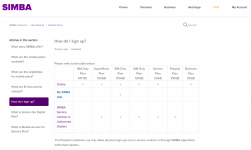- Joined
- Jan 17, 2001
- Messages
- 8,606
- Reaction score
- 4,590
The costs are usually levied by their payment provider, but the destination for the transfers is ultimately their own internal financial accounts. Perhaps they could offer manual top-ups in person, bypassing their payment provider. Or offer another provider that leverages on our iFast bank transfer network like Paynow/PayLah. There's definitely a way to do it - if they had planned these things upfront. All they need is a clearly indicated destination account so the transfers go into the right user account.Topping up random amounts would still incur per transaction cost.
Normally even though it's a fix percentage payable to the payment provider, there's also the minimum cost per transaction payable.
Imagine someone used 10MB of roaming data by accident, clocking in $0.04.
Don't be surprised if someone were to topup this $0.04, it would cost SIMBA more than this $0.04 for transaction cost, making them lost money while doing so.
It's far better than the poor guy who has $9.96 and can't use it, and has to consume another 2490MB of roaming data to clear that, or start spamming international SMSes (and risks his account being banned for that kind of spamming).
It might be cheaper for them to waive the 4c then.
As an aside, I'm not sure if it's even ethical or may have repercussions.
1) Monies are one way, users cannot withdraw.
2) Monies are tagged to the number and expire upon termination, whether initiated by user or telco for whatever reason.
3) No refunds given.
If users have no reasonable means to use their $9.96 because of their billing system's limitations, that's a company effectively stealing that money from their users as they can never get it back nor draw it down in a reasonable manner. Perhaps someone ought to write in to MAS and IMDA to clarify, because absorbing this kind of "float money" is not quite right. What if the person who put in the money was the low income folks like the foreign workers, where every cent counts?


